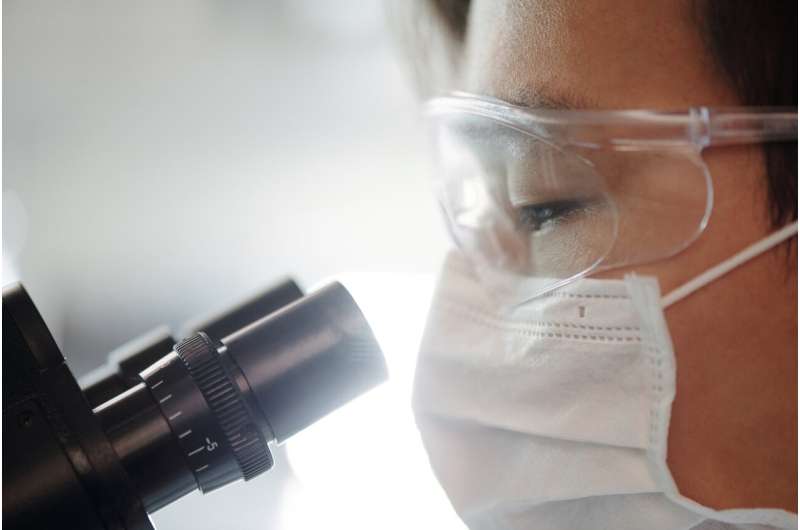
An international taskforce created by a UNSW Science psychology researcher has recommended a set of neurocognitive and mental health questionnaires to harmonize the assessment of patients with long COVID.
The recommended tests and questionnaires, published in the Journal of the International Neuropsychological Society, can be used internationally and in a variety of cultural settings.
“Because COVID-19 is a new disease and the research deriving from it is new, we need to develop excellent research methods to address questions, such as: how many people have the problem, how long does it last, how many patients fully recover, do these neurocognitive difficulties precipitate dementia in some people?” lead author and Research Fellow in UNSW’s School of Psychology, Dr. Lucette Cysique, says.
“Now we will be able to assess these problems in the best way possible using these expert recommendations.”
Dr. Cysique, an expert in HIV neuropsychology, last year set up a group made up of members of the NeuroCOVID International Neuropsychological Society special interest group, which is now a taskforce of more than 120 members.
She says the NeuroCOVID International Neuropsychology taskforce recommendations encompass brief, medium, and comprehensive evaluations.
The brief evaluation includes a short screening conducted at a patients’ bedside or by telehealth, and short questionnaire to assess olfaction, taste, and mental health.
At the more comprehensive level, there are options for cognitive computerized assessments, standard neuropsychological tests and objective testing of taste and smell.
There are also mental health recommendations that cover a wide range of pandemic stress impacts and pre-existing psycho-social vulnerabilities.
The recommendations can be applied in all phases of infection as well as in a variety of resource settings.
ADAPT study of COVID-19 patients
Dr. Cysique and her colleagues trialed the recommended methods in the landmark ADAPT study led by Associate Professor Gail Matthews from the Kirby Institute, who is also Head of Infectious Diseases at St Vincent’s Hospital.
The ADAPT study is following over 150 individuals who have had COVID-19 for up to two years to understand how people recover following their infection.
“A significant proportion of individuals continue to have a variety of symptoms, or long COVID, several months after acute infection,” Prof. Matthews says.
Researchers within the study are exploring whether abnormalities in the immune response to COVID-19 are driving this new syndrome.
“When studying a new phenomenon such as long COVID it is critical that we use a set of well validated globally generalisable measures such as these developed by the NeuroCOVID International Neuropsychology taskforce,” Prof. Matthews says.
Dr. Cysique says the recommended methods showed up to 23 percent of study participants had neurocognitive difficulties six months after infection.
“Importantly, we found that these neurocognitive difficulties were not associated with depression or anxiety but were associated with an increased immune response,” Dr. Cysique says.
The use of standard neurocognitive methods was critical in finding this result, she says.
Neurocognitive complications for people with COVID-19
Dr. Cysique was one of the first neuropsychologists to recognize that COVID-19 may lead to neurocognitive complications.
These complications may result from SARS-CoV-2, the virus that causes COVID-19, directly infecting the brain or provoking an abnormal immune response, she says.
“Both mechanisms occur in the context of HIV-related neurocognitive complications,” Dr. Cysique says.
She says accurately knowing who is experiencing difficulties is the first step for intervention with long COVID.
“We know that some people develop a ‘brain fog’ such as difficulties in concentrating and paying attention and this can persist months after infection,” Dr. Cysique says.
“In some patients, such difficulties are associated with a feeling of generalized fatigue which can be severe enough that people cannot work as efficiently as they used to.”
She says she hopes that the recommendations will lead to the creation of a large global research database that will produce robust research results to determine what is the frequency of neurocognitive problems in people with long COVID.
“This will assist in developing an accurate picture of what is the burden of neurocognitive difficulties post COVID,” Dr. Cysique says.
Source: Read Full Article
